Tamami Honma & Julian Brown, Cal Arte Ensemble| December 2020 | California
Amidst the wider fallout caused by the Covid pandemic, musicians have been particularly hard hit, suffering cuts worse than restaurants and other badly affected industries. With venues shuttered, concerts canceled for months, and people obliged to distance themselves from one another, many musicians have had their entire existence upended with few if any opportunities remaining to play together and to perform in front of audiences. Early in the pandemic, we in the Cal Arte Ensemble realized that we needed to rethink radically the way we operate. As symphony orchestras, opera houses, and concert halls shut down, it became clear that many of us would be unable to play in front of audiences for a long time – at least a year and perhaps longer. As news of the pandemic developed, a large concert we had long planned to perform in March 2020 with the San Jose Symphonic Choir featuring works by Beethoven and Hummel was canceled. With all the uncertainties that came with the rapid spread of a dangerous and hitherto unknown virus, it felt like we were living in a bleak new era, almost the stuff of a dystopian science fiction novel.
We quickly decided to make the best of the situation by recording one of the pieces that had been programmed for our March concert using techniques that have now become almost commonplace. We asked our ensemble musicians and choristers to record each of their parts at home. After they had submitted their recordings to us, we were able to align and mix them together in a virtual performance. The result was a rendition of Beethoven’s beautiful and rarely performed choral gem Opferlied which we put on YouTube in April 2020. Many of those who had participated expressed their joy in seeing the resulting video, in part because the shock of the almost complete shutdown had robbed so many of the opportunity to get together, rehearse, and perform. Some even said that we had offered them an emotional lifeline because now, although they were confined at home, some of them quite alone, the virtual performance gave them a sense of a shared musical experience.
Although we had put together one of the first pandemic-inspired virtual performances, the idea quickly spread and before long, there emerged a plethora of other virtual performance videos created by musical groups across the globe, including leading symphony orchestras. However, the performances were usually of short well known pieces done more with novelty and amusement in mind than perhaps for any serious artistic content.
At Cal Arte, Tamami Honma felt strongly that we should aim for something altogether bigger and came up with the idea of putting together a virtual performance of a complete opera. Thus was born her vision to create a virtual version of Verdi’s beloved masterpiece La Traviata. She saw it as a beacon of hope, like sending up a bright flare into the sky announcing to the world and to other musicians that, yes, we can still work together. By such a collaboration, we could continue to draw upon a tremendous array of musical energy and talent, while audiences could listen to newly-produced content that went beyond the usual three minute novelty video. In her quest to assemble a cast, she asked all the singers: to put themselves in the zone just as they would have done on stage. Of course, such a transformation is not easy. The pianist Vladimir Horowitz, for example, refused to record without some audience around him because he felt it would enliven his performance. The starting point for this production was to ask the singers to record themselves while listening to piano tracks of the arias that Tamami had recorded. These piano tracks serve as the replacement for a conductor providing the critical framework that enables the whole production to come together. But rather like the way scaffolding is eventually removed from a building in its construction, the piano tracks will not be heard in the final performance because they will be replaced by a virtual orchestra. Just as a conductor has to have a very clear vision of how they will approach a work, the tracks required a lot of work and thought because they needed to embrace the huge variety of tempi that Verdi encoded in his score while also anticipating and negotiating the tempo variations that each singer might want to bring to their performance. Doing this while the cast are altogether in the rehearsal studio is one thing. Doing it one by one, with everyone working remotely, is quite another. Tamami’s previous conducting experience and as pianist in rehearsing opera productions has come to the fore in managing this complex and intricate feat.
Another critical component in pulling off a large-scale production of this kind comes in the magic of the video and sound engineering that makes it possible to bring together a disparate array of home recordings into one seamless performance. Sound recordings need to be aligned and synchronized so that they sound as though two or more singers are performing on the same stage. Multiple instruments need to be layered in to replace the anchor piano tracks with an orchestral sense of rubato and nuance. None of this is being done with the usual studio shortcut of using metronome click tracks. While click tracks are useful for short works that move at a constant pace, they are not flexible enough to allow singers the freedom to breathe and express themselves naturally. Video recordings also have to be assembled into a coherent whole that somehow evokes the theatricality of the opera. Since the beginning of the pandemic, Cal Arte’s Julian Brown, who has played as concertmaster in many orchestras and has prior experience at the BBC in sound recording and production, has applied his blend of expertise to both technical and artistic issues in a series of virtual performances including Cal Arte’s video of Beethoven’s Opferlied and the San Jose Symphonic Choir’s complete performance of Faure’s Requiem premiered in November 2020.
The production of La Traviata is planned for release on Cal Arte’s YouTube channel on Valentine’s Day, February 14, 2021. With a cast of established opera stars working together here in the US and in Germany performing the main roles, it promises to be something truly out of the ordinary. But because this has been such an extraordinary time and the pandemic has had such a profound effect on the way many musicians work, we felt it worth finding out how our singers in this production have adapted and kept their spirits up. Worth mentioning too is that, in some ways, singers have been even more adversely affected than instrumentalists. While some string quartet and piano recitals have still been possible, albeit with much diminished socially-distanced audiences, because of the aerosol transmission of the Covid virus, singers have been almost entirely banished from most performance venues. We wanted to know how our singers have coped and how they see the value of working on this and other virtual productions.
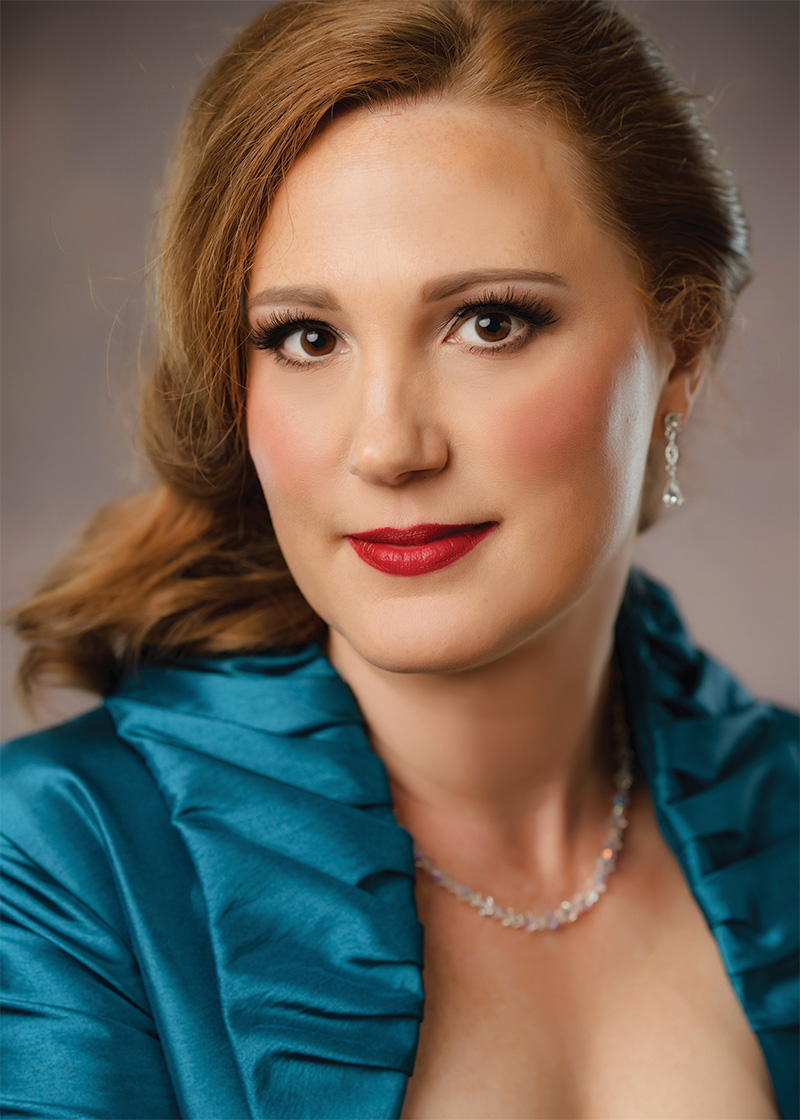
Rebecca Davis, Soprano – Violetta
Ms Davis is an award-winning soprano who has performed in major roles in opera houses across the US and now more recently in Germany where she has performed with the Hannover State Opera.
“I live in Hannover, Germany. My contracts have been canceled during this pandemic, but I will put together a Covid-friendly concert in May 2021, singing contemporary works with eight cellists, doing works by Arvo Pärt, Villa-Lobos, Copland, and Anica Galindo. I have moved online in so many aspects of my life. I started a new consulting business (SoftlyLoud Artist Consulting) helping to guide singers in their careers, providing new contacts, and am starting a masterclass series which focuses on the many aspects of a singer’s career. I have also maintained my vocal development with my teacher Neil Semer. I also teach, currently online. I was able to meet with a few collaborators to create video content when the lockdown was eased during the summer.
La Traviata’s Violetta is my absolute favorite operatic role. She is a sharp and shrewd courtesan, suppressing a profoundly compassionate soul who was yearning for true love. I have been fortunate to sing Violetta in many places. My first experience was with Intimate Opera in a chamber setting in a church in Chicago, Illinois. I was able to take time and really focus on the bare and vulnerable aspects of Violetta’s personality and situation. Later, when I did the full opera with the grandeur of complete sets, orchestra, and lights I could enjoy the dazzle and spectacle of her world, before her sickness robs them from her. In Act I, you really feel the protective shell that she puts on to survive in society as a courtesan. Only Alfredo could break through this shell. Yet in Act II, when she sacrifices her love for Alfredo for the reputation of his family, she tries to put the shell back on. She is not successful and she quickly falls into illness, only reuniting with her love for her last few breaths. It really is heartbreaking. She knows that when she sacrifices her love it will be the end of her. I was lucky to sing the role again with Opera Santa Barbara, Opera San Jose, Festival Opera, and Livermore Valley Opera.
For our virtual performance, I think the audience will appreciate that we came together in spirit for this wonderful story and music, even though we could not do so physically. My absolute favorite moments are in Act II, especially the duet with Giorgio Germont. His ‘Piangi, piangi’ is so heartbreaking musically and forecasts the inevitable breakup between Violetta and Germont’s son Alfredo. Germont is steadfast in his purpose even while trying to console Violetta. I believe, in this moment, Violetta has a fleeting thought that she can convince Germont to let them remain together. By the end of the duet, that hope is gone, and she resigns to help Germont’s family maintain their reputation, so that Alfredo’s sister can get married. Then comes the ‘Amami, Alfredo’, Violetta’s plea to Alfredo when he doesn’t know that she is leaving him. The dramatic height of the voice with the orchestra together is so brilliantly written by Verdi. It’s one of the best moments in all of opera.
I need to inhabit a character or be within the rush of the amazing music. I tend to bond more quickly with characters who find themselves in desperate situations. I felt that the most with Traviata, Tosca, Rusalka, Madama Butterfly, Mimi in La Bohème, Magda in La Rondine, and the Countess in The Marriage of Figaro. I love doing comedy too. It lets me take breathers between the ‘drama queens’, but when I make my bucket list of roles I would like to do, they are inevitably the dramatic heroines.
I have many teachers to be thankful for. They still guide me and help uncover new aspects of my voice or new possibilities in interpreting a role. That’s what I love about what I do. I am a perpetual student. I carry all of my teachers and coaches with me onto the stage in execution and spirit. I have to say the one I am most thankful for is Jody Kienzler. She led me to my love and curiosity of classical music through a simple Schubert song, ‘Der Tod und das Mädchen’. I was struggling to connect with classical music at that time and she knew with my flair for drama that I would connect to the desperation of the Maiden and the resolute calmness of Death. From that moment, I was hooked.
I am fortunate that I get to work with singers daily in my consulting business. I listen to their fascinating journeys and help them into new phases of their careers. I tell them to keep going, learning, growing, developing their craft, and connecting with others who are doing the same. Singers are strongly supporting each other right now. I think this has been a time for contemplation and development in the arts. Projects such as this Traviata and the development of new operas should be able to find audiences hungry for connection. It’s thanks to modern technology too that we can share the great work of the past by presenting virtual performances. I hope that we will continue this momentum well into the future.”
Dane Suarez, Tenor – Alfredo
Lauded by LA Weekly for his “big, heroic voice” that conveyed “powerful emotions”, Mr Suarez has been in great demand across the US. He was a 2014 National Semi-Finalist of The Metropolitan Opera National Council Auditions, and made his John F. Kennedy Center debut in 2015 with Washington National Opera as Ely Parker in Philip Glass’ Appomattox. Other notable engagements include his New York City Opera debut as Joe in La Fanciulla del West.
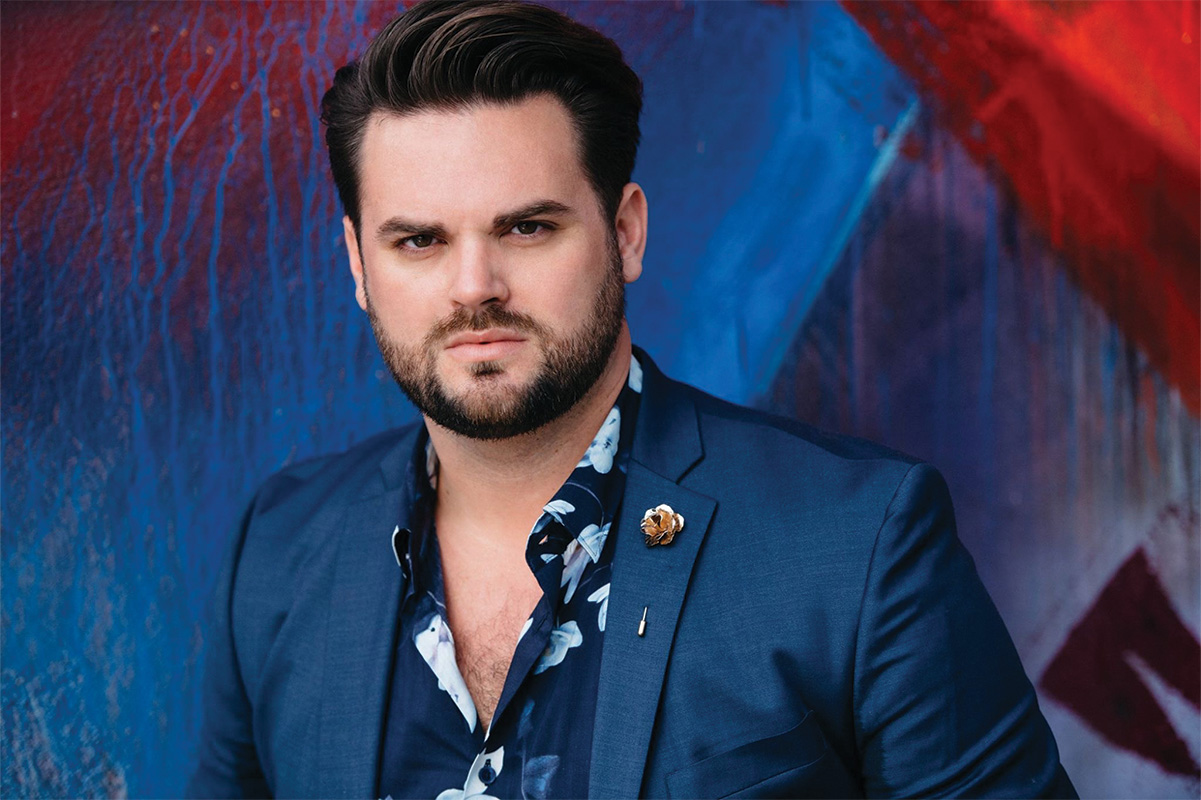
“At the start of the pandemic, I was living in San Jose, California, where I had previously served as the tenor resident artist for Opera San Jose. In July, my wife and I moved back to Long Island, New York, and she and I are currently posted in Memphis, Tennessee, where I am performing socially-distanced, digital concerts for Opera Memphis as a fall company artist. It’s been a pleasure to be involved with companies who understand the importance of making art during this time and I’m proud to be a part of it.
Since shelter-in-place began, I’ve moved twice so it has been hard to be in new places and stay at home, but that’s the name of the game! At the beginning of the pandemic, making music was easy and welcomed. I looked forward to carving out time in my day to sing and was continuing to work on upcoming roles (Rodolfo, Faust, Don Jose, Manrico). As each cancelation came in, it got a little harder to open my scores. In July, I stopped singing for about 6 weeks. Coming back to it was hard, but so necessary. Since mid-August, I’m proud to have sung every day in some capacity and will continue to do so. Singing is so important to my well-being and keeping my voice in check has been incredibly important. As a company artist at Opera Memphis, I have been bringing music to the people in different ways. We’ve been singing concerts on the street for neighborhoods, once a month we sing a concert on the local NPR station, and I’ve been creating lots of digital content. In addition to these projects, earlier on this summer I sang the role of First Armored Man in Opera Neo’s virtual Magic Flute where I performed and rehearsed in my home over Zoom and set up a green screen and learned how to do audio and video for myself. Crazy experience!
Adapting to doing these virtual productions has been hard. Nothing can truly replace the experience of being in the same room doing this. In some ways, though, the process has been made easier almost by chance. Working with Opera Memphis, I’ve learned that there are ways that we can still make art.
La Traviata is an opera that I first performed in 2018 in my first season with Opera San Jose. I’m so happy to be singing this glorious music again during a time when we’re dealing with the loss of so many people. The best part of the story for me is Flora’s party. I love the confrontation and hopefully we will have an exciting way to show our audience what that might look like in this digital age. I don’t think that today we can truly understand how terrible something like tuberculosis could be, and so coming back to this story during this time is much more poignant. What happens when you can’t be with the folks that you love? This is the new story we can tell through digital media. Recording in isolation from a distance has been particularly challenging for me. Going to school for music and having a career in music certainly did not prepare me to also take on the role of recording engineer, videographer, and so forth; but that’s where we’re at now. I have spent a lot of hours trying to perfect something that will never truly be perfect from my living room. I’ve learned a lot, but it’s not easy and certainly isn’t as simple as outsiders may think.
For this opera, I think we have come up with a new and interesting way to tell the story. Since we cannot be in the same place, rather than trying to fake it, we are running with it. What is this time like when you can’t be with the people you love? Who follows the rules? It makes for an interesting story, I think. We have adapted as humans to come up with new ways to keep in touch, so using those same platforms to communicate is the basis of that production and I think it will be very effective and relatable.
Opera is the ultimate art form. It’s the combination of music and theater and dance and art. I think the dedication that my colleagues show me inspires me to work harder and to push myself.
‘You can’t do a don’t.’ When my teacher said this, she meant focusing on things that you can change rather than not doing something. Regarding the future, we don’t have to wait around even though model institutions have put things on hold. There is more to opera than The Met!”
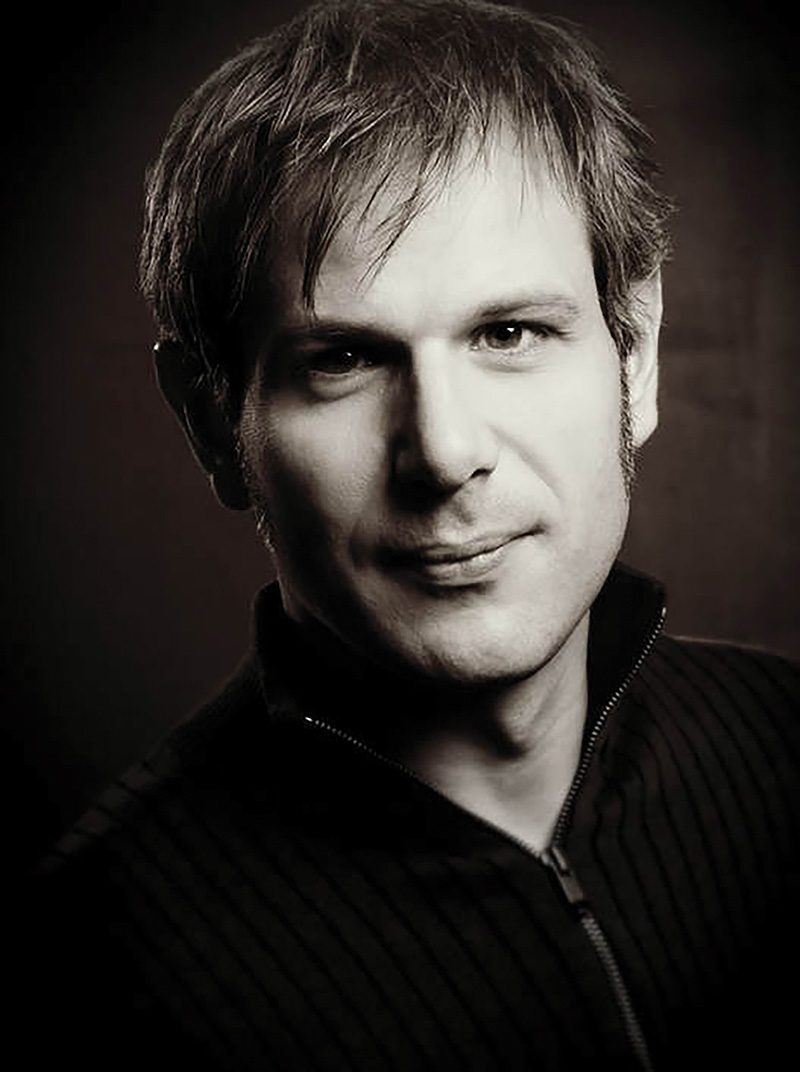
Krassen Karagiozov, Tenor – Germont, Alfredo’s father
Praised for his “mellow, burnished, beautiful [voice]” (San Jose Mercury News) and “strong voice” (New York Times) and referred to as “the most commanding singer on stage” (SF Classical Voice), Bulgarian baritone Krassen Karagiozov has thrilled audiences in concerts and on the opera stage with music that spans the classical and modern eras.
“I’m currently located in Morgan Hill, California. When shelter-in-place was announced, my family and I were at my in-laws after performances of Macbeth with West Bay Opera in California. We were supposed to travel to Europe in the spring but of course, all that changed. We ended up staying with my in-laws for eight months – basically the whole time since our arrival in the US late in 2019. Although it was difficult, I kept up my music-making as much as I could. I started working on new repertoire and continued teaching online as I had been doing already prior to Covid-19 due to my travels abroad. I continue in the same way to perform, record, and upload music, and collaborate with other colleagues including now also the Traviata project with Cal Arte. I also have an upcoming concert performing Mahler’s Das Lied von der Erde with the Sofia Philharmonic Orchestra in Bulgaria next year.
Adapting to the pandemic conditions meant transferring all teaching and studying online. I have been able to keep studio recitals for students going and will continue doing so until the pandemic is over. For concerts, we still have some ways to generate audiences by doing house performances coupled with live streaming. On the other hand, a lot of opportunities in the theaters have disappeared. The loss of income to artists and to theaters along with the shortage of benefactors because of the pandemic has been absolutely devastating for the cultural life in this country.
Of course, it’s not just the US – many musicians around the world have been in the same boat. And quite apart from financial concerns, not being able to connect with our audiences has a huge impact on how we derive our energy. It’s also been very hard on music educators, especially choir and orchestra educators, conductors and their pupils. Playing music together is an essential part of the way we live. While concert halls, opera houses and orchestras in the US have all been hit hard for the upcoming year, in Europe things have been slightly different as some houses have tried opening to reduced audiences as long as the virus is held at bay.
While this situation has been difficult for everyone, I like to think it has also given us the opportunity to slow down and rethink how we do things as a society. It’s forced us to make room for creativity, for more self-searching and for valuing the important things in life. I think that now is actually one of the best times for anyone who wants to study music to do it. Even if it is online, we now have more time on our hands to work on things before the whirlpool of life whisks us back into a frenzy on everything else. The opportunity to reflect on life and the timelessness of the situation has given me the inspiration of working on the project and doing the things I love most.
I love singing and performing Traviata – in fact, I’ll take on any of Verdi’s works. One of the challenges has been how to record it. Even finding a quiet location to do it can be difficult in a family home! Also singing alone while wearing earphones and listening to the piano tracks is quite tricky: the experience is obviously totally different from being on stage because there isn’t the same flexibility you get with a live conductor helping to bring everyone together. As far as new skills, I hope that I will be able to record from now on much more easily and on my own as well. It certainly will be something new as an experience with all of the technologies involved. I hope that the final product will be fresh, and that people may enjoy our unique voices and the great music that Verdi wrote. I certainly look forward to hearing the ‘Libiamo…brindisi’ from the first act duet. This was one of Verdi’s greatest hits of all time, popular since it was first heard.
My interest in opera began as a child while seeing performances at my city’s (Stara Zagora) State Opera company in Bulgaria. I was studying piano at the time. This was my first instrument and being at the opera festival during the month of December every year was awe-inspiring and I fell in love with it. Opera made me experience all music in a much deeper way. Later on, when I added my vocal studies to the piano, I began to immerse myself in the art form even more. The motivation to keep me going is that it makes me free and happy! It reminds me of my favorite quote from a teacher in the past that I still carry with me today – ‘Be yourself!’”
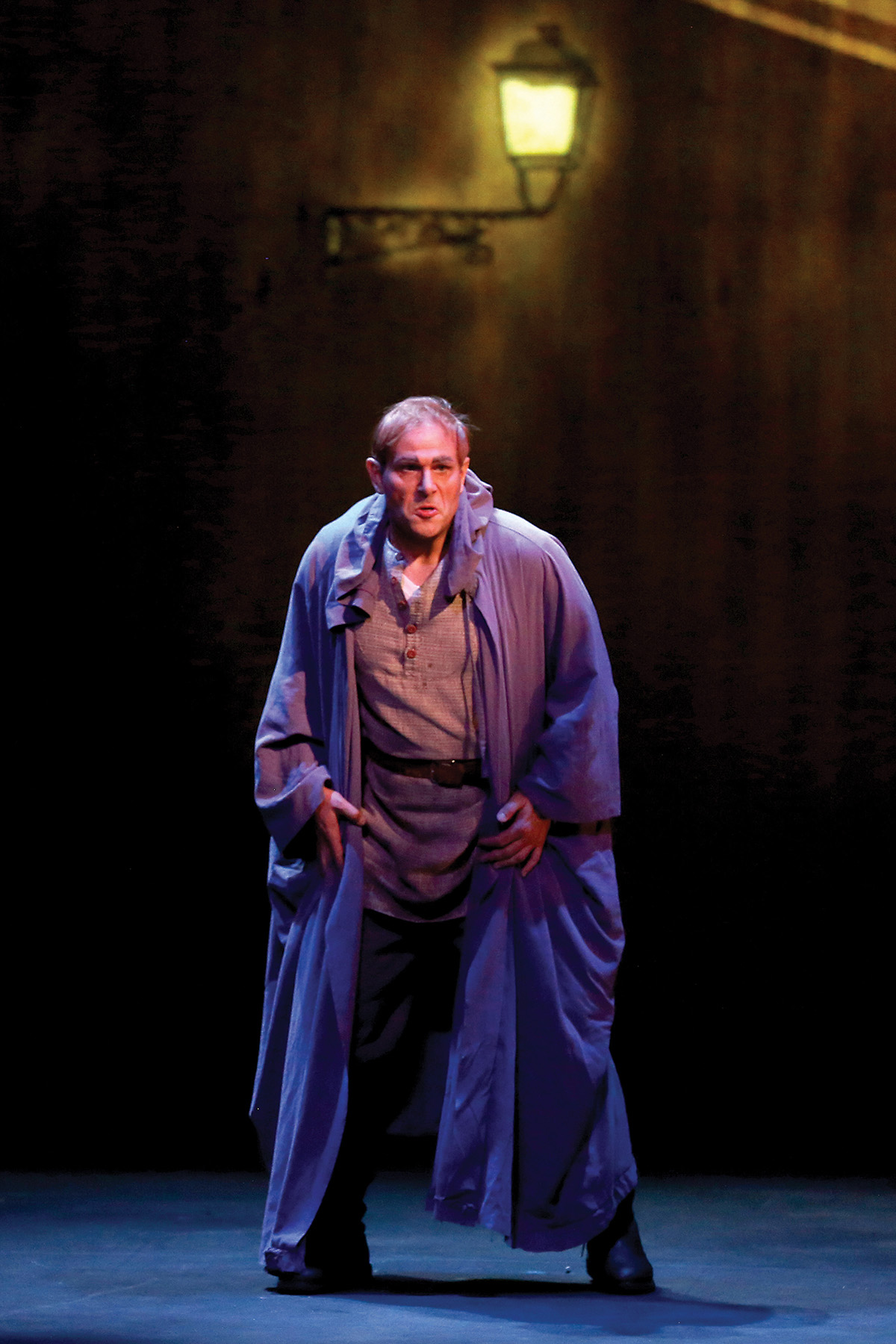
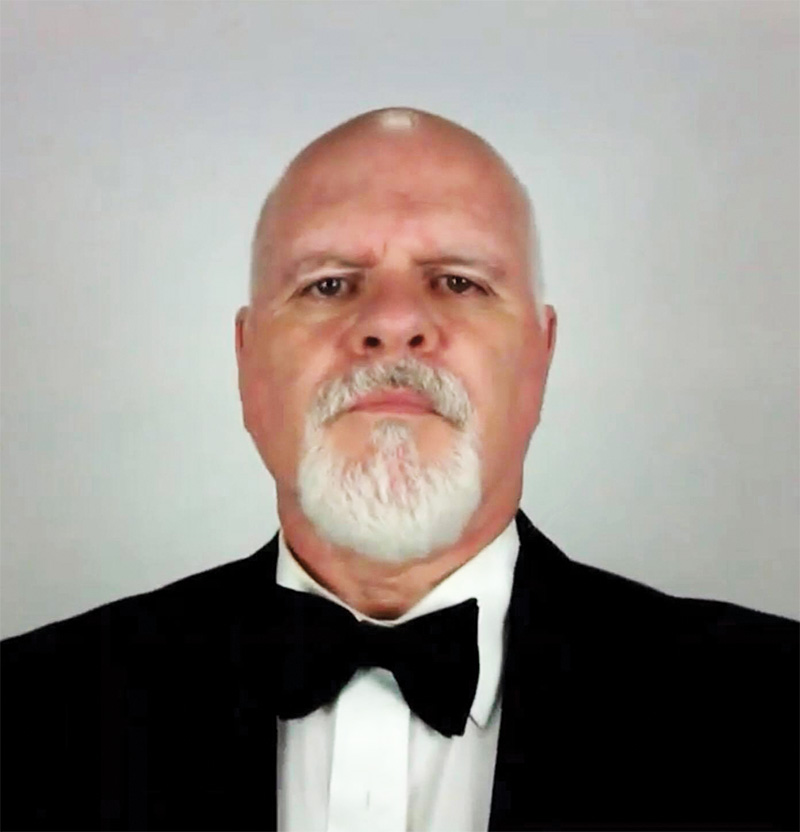
Dan Morris, Baritone – Dottore Grenvil
Mr Morris is a singer and actor who has performed many leading roles in opera and musical theater. He is also Executive Director of Schola Cantorum, one of the most respected choral groups in the San Francisco Bay Area.
“As Executive Director of the Schola Cantorum, my primary function there has been administrative. The pandemic has had us scrambling to maintain our organizational health – which we are managing to do – and helping create virtual offerings for our audience while keeping members’ voices from atrophy and their musical skills sharp. What I have heard from our singers and audience is how important community is: the social aspect of performing arts is powerful. We all need to know that some things will continue and that they will come back as before.
The thing that convinced me to work on this virtual production of La Traviata is that I have worked with Tamami and I figured if she was involved it would be good! We are in a world now where every musician has to have their own mini recording studio; so I have learned about microphones and recording software. I also have learned to accept that perfection is an illusion. At some point you have to let go of your work and let it be out there. When we sing live performances, as soon as you sing, it’s out there and you can’t take it back or change it. In a virtual performance, yes you redo your part until you are happy with it, but it is still hard not to have the other voices and actors to play off.
Although I have not recorded the video portion yet of my role, I have done some others. Seeing my facial expressions up close makes me want to work harder on that aspect of my acting!
Given that this will be one of the few attempts to assemble a great romantic opera entirely virtually and with contributions from different parts of the world, I think audiences will be amazed at how it can come together.”
Kayla Wilfong, Soprano – Annina
Ms Wilfong graduated from the San Francisco Conservatory of Music and has performed regularly with multiple choral groups in the Bay Area, including solos with the San Jose Symphonic Choir, Cambrian Symphony, and Cal Arte Ensemble.
“As a teenager I once played an ‘extra’ in a movie and grew up singing with the San Francisco Girls Chorus and the Young Women’s Chorus of San Francisco. I was lucky enough to be included on their CDs and also those of the San Francisco Symphony including Mahler’s Symphony No.3. The girls chorus, in addition to blessing everyone with an intense, rigorous curriculum of music theory, musicianship, voice lessons, and diction classes, always taught us to challenge the ‘glass ceiling’ notion. ‘Someone has to do it, so why can’t it be you?’ is something I always heard. My experience at the San Francisco Conservatory of Music challenged me even more. Although at times I felt as though I was going to break, I ended up coming out much more resilient, harder, confident, and capable, mostly thanks to the guidance of my mentors, Leroy Kromm and Tamami Honma.
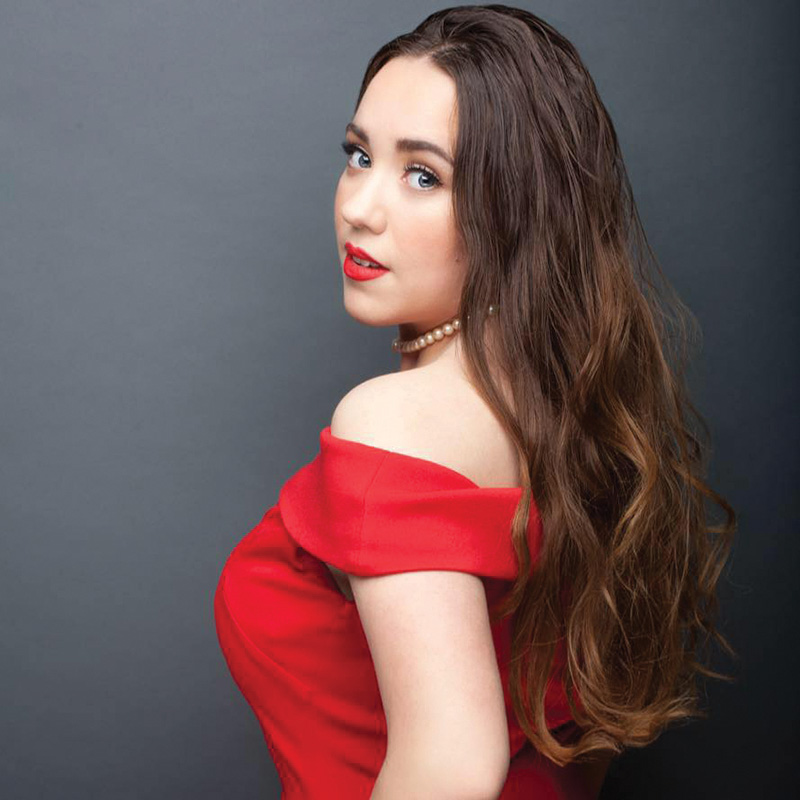
One reason why opera is close to my heart is that it was invented to be the ultimate art form. I love visual art, theater, music, fashion, and I love languages and history – opera basically brings together everything I love most! I was also stunned at a young age at how powerful it can be, and how directly, easily, and potently it can touch people. Regardless of how outlandish some of the characters can be, I think that we can all relate in one way or another to some characters and situations in opera. And if we can’t, then the music helps us to understand it. I’ve also always loved studying singing and languages as a skill, a challenge, and an art form – that’s why I love opera.
La Traviata is one of my all-time favorite operas, and I knew being able to participate in this project with Cal Arte and having a reason to sing and do character work would help me get through the pandemic. Tamami Honma was my vocal coach in college and has been a great friend, so when she told me about the idea, I was very excited to join.
During the pandemic, I’ve been doing virtual solos here and there, such as the soprano solo in Fauré’s Requiem, and some virtual solos for churches. In addition to singing, I’ve also recently taken on the role of digital music editor at a local church – the church choir, the organist, and any other musicians send videos of themselves singing Sunday’s songs to me, and each week I combine and edit them to create choir videos and to make the weekly music for the church’s virtual service. I’m also teaching music quite a bit: virtual voice lessons and virtual music theory lessons.
One of the things I have learnt through this whole process of being socially isolated and moving things online has been to let things go – not everything has to sound perfect, and in fact all of the slight imperfections help to make music more beautiful, true, and real. Nevertheless, I’ll never again take for granted the power of live performance and of actually being in a concert hall full of people who are all experiencing incredibly powerful moments together as one community. I always hope with my own music that I can reach/touch at least one person. If I can help to make one person experience something positive, then that’s a success to me.
The thing that has kept me going through these difficult times is the knowledge that I’m doing everything in my power to keep making art to share with people. Throughout history, in times of turmoil, people have always turned to art. It’s one of the great characteristics of human beings; we have a driving need to create beauty out of suffering. I believe it brings us closer to each other right now, to people in the past, closer to our collective humanity, and closer to the Divine.”
Norman Espinoza, Bass – Commissionario
Mr Espinoza is a graduate of San Jose State University where he obtained both his Bachelor’s and Master’s degrees in Vocal Performance. Now living in Las Vegas, Nevada, during the pandemic, he has still been singing at The Venetian.
“I have done multiple recording sessions and virtual choirs, but this will be my first time doing it to an opera. I worked with a few of the singers involved before shelter-in-place and I am happy to reunite with them virtually through this project. One thing I have learned from this whole process is that recording in isolation is easier and harder at the same time. Obviously, it is less fulfilling than doing it in person: there is no one to play off of or to give you helpful advice. But if you do make a mistake, you can always do another take and try it again. The hardest part for me is that I am a perfectionist. I want to have the correct technique and phrasing when I am singing, but if I don’t like what I did, I have to start over.
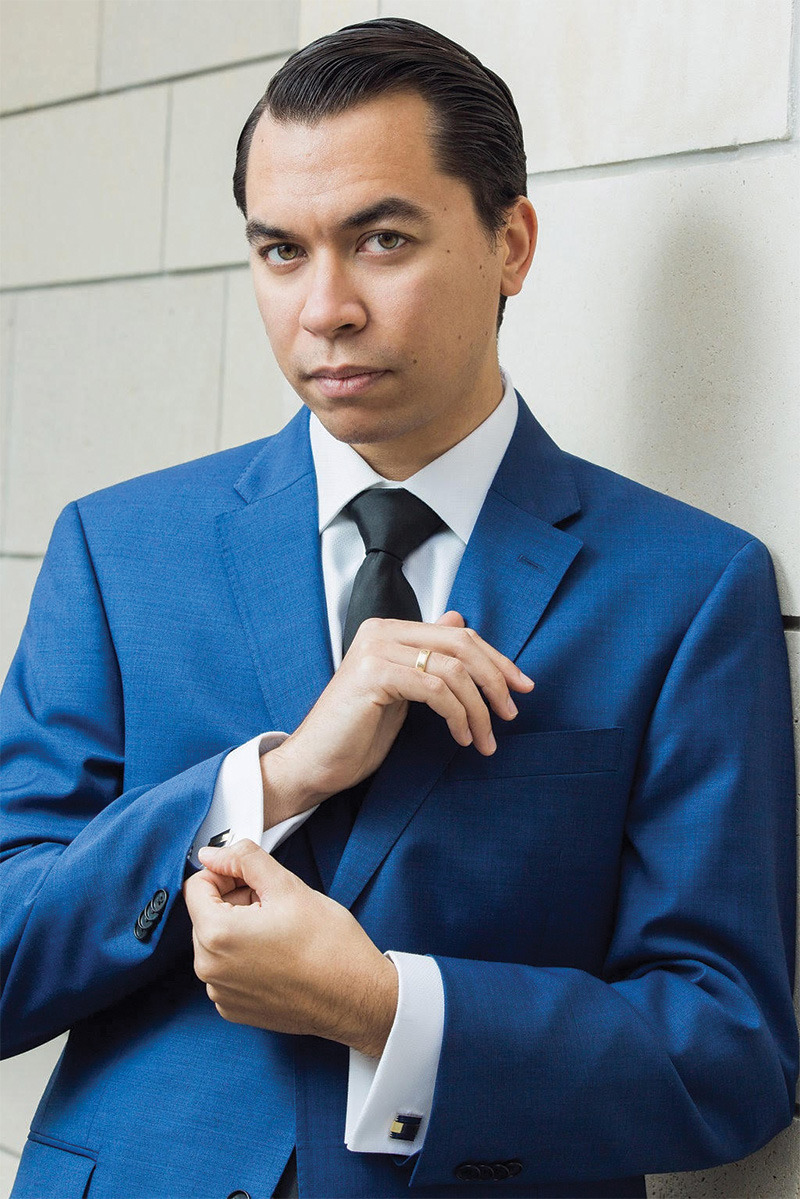
I believe we have all learned that we don’t need to always be in the rehearsal room for everything. Production meetings and other similar meetings can be now transferred to Zoom. But as a singer, I feel we need live interactions to make an opera come alive, otherwise it’s hard to make it a fully three-dimensional experience.
Having said all of that, I am delighted to be able to participate in this production. I would also be excited to watch a virtual project like this from home. I save money on gas and I don’t have to worry if I am going to be sitting next to someone that’ll talk to me the whole time. But kidding aside, we can only hope that everyone enjoys the production and that we did the best with what we had.
The main message I would like to share is: don’t get complacent. We have all this free time and a lot more distractions, but we should be using this time to perfect our craft. If you are not working on getting better, someone else is going to surpass you. Keep going and don’t slow down!”
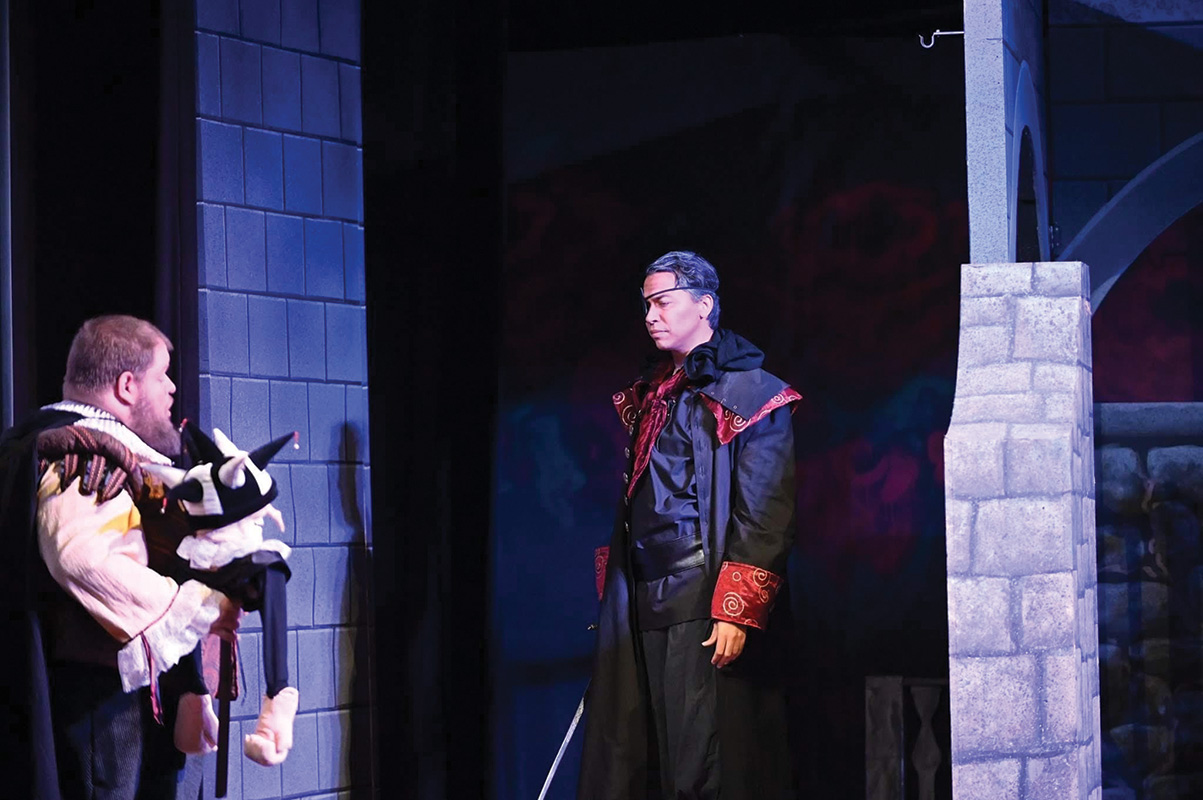
Tim Tseng, Chorus bass
Dr Tseng is a retired urologist, originally from Hong Kong, who is a member of the San Jose Symphonic Choir and has performed in many theatrical productions.
“Although I am a retired urologist, I still do volunteer consulting. One of the main reasons I decided to retire is because I want to participate more in musical theater, which was quite difficult to do with a busy surgical practice.
Doing these virtual productions has been stimulating and interesting. The first one I did was a production of Gilbert and Sullivan’s Trial by Jury with the Lyric Theater of San Jose. I have never done anything close to an Italian opera before; so when I heard about this project, I jumped at the opportunity to participate. I have worked with other musicians involved in this project before but not in a theatrical production.
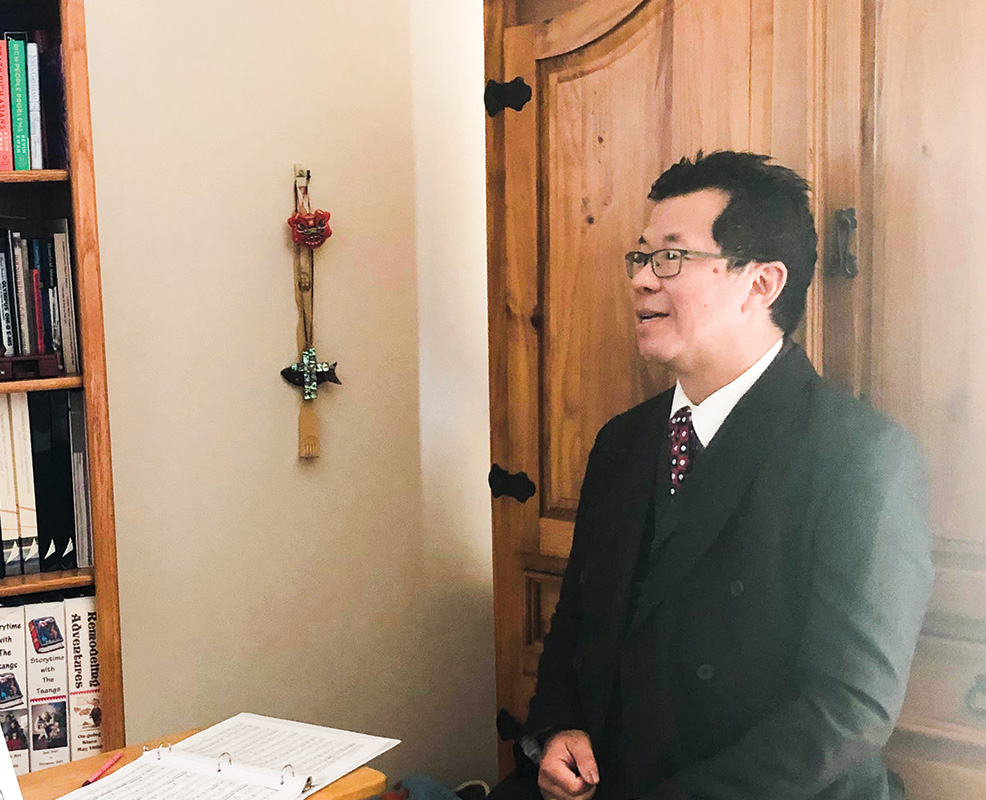
Of course, there are pros and cons about doing a virtual production with solo recording. The cons definitely is the lack of interaction with other musicians which many times creates a synergistic effect. The pros definitely is the ability to redo a section if one makes a mistake. With my limited experience of Italian libretti, it would be quite difficult for me to do the whole thing by memory in a live performance. The piece is definitely challenging. But the ability to do small segments virtually has really helped bridge the gap for me and made it possible.
Hearing myself sing on the recordings was a reality check though. I have already made improvements with my recording voice with each production. I think this is one of the main gains I have made doing this performance.
I think the audience will enjoy it. It won’t be the same as a live performance but just the ability to get something like this done despite the extremely unusual circumstances should deserve appreciation.
I can only say that I am very thankful for these musical opportunities. We are in an extraordinary time and there are many factors which we cannot change or control. We can either do nothing and be frustrated or continue to find ways to adapt and make the best out of the situation. I have found that new opportunities and possibilities present themselves when I am willing to step out of my comfort zone to do these productions.”
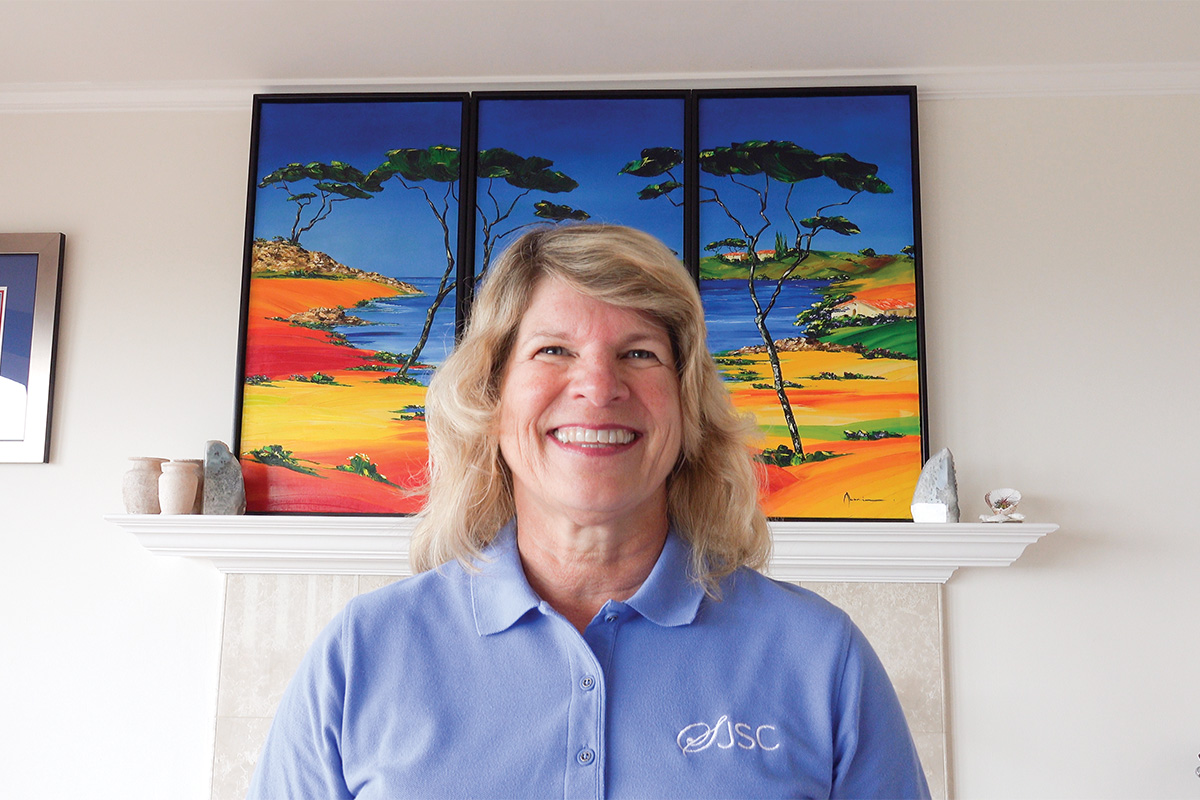
Aprille Lucero, Chorus soprano
Since retiring from a 33-year career as an aerospace executive, Ms Lucero has enjoyed making music as a full-time passion. She has been a long-term member of the San Jose Symphonic Choir, a member of the Carmel Bach Festival Chorus, the Camerata Singers, and an original member of the Voices of Hope Choir.
“This is my second virtual production experience even though I had not expected to do more than one. My first recording project was Cal Arte’s performance of Beethoven’s Opferlied with the San Jose Symphonic Choir early during the pandemic. I was motivated to do that in solidarity with the group and especially to honor our director Leroy Kromm. I never imagined that we would be facing an entire season of ‘virtual’ performances last March.
When the opportunity to participate in the La Traviata project was presented, I initially hesitated. It would be a huge challenge to learn a lot of music quickly and then record it. Eventually I realized that if I wasn’t willing to put myself out there, how could I expect others to? To keep music performance alive, we all have to do our best in a different and challenging situation, so I said yes…and I am glad I did.
I learned some technical skills such as ensuring my recording quality was good and that I was in-sync with the piano track. Recording alone means you cannot hide in a group. You have to take responsibility for knowing the music and being self-sufficient. What I realized is that it is no different than in a group performance setting. It is always your responsibility to be entirely self-sufficient and sing as though you are the only one on your part.
The most surprising skill I had to learn was listening without judging. While it was important to ensure accuracy, both pitch-wise and rhythmically, I had to set aside that voice in my head that wondered if it was good enough to submit.
Doing this project was at times very lonely. It turns out that the process of rehearsing together is more important to me than I realized. While I can certainly learn the music by myself, it is more fulfilling to take the journey together with others.
My voice teacher has always had to remind me that there is no such thing as perfection in performance. While making the recordings, it was very difficult for me to just stop trying to make it perfect and stop the cycle of recording and re-recording. For instance, in one of the choruses the words were very tricky, and I am not certain that I got them absolutely correct; however, my voice and emotion seemed on point so I stopped after lots and lots of takes. And then I had the ‘aha’ that even with more time to practice and in the usual live performance setting I might have gotten tongue-tied and not done any better.
I will come back with a new appreciation for how important it is for me to be with others together – both figuratively in solidarity and literally in physical proximity. The give-and-take of singing alongside the others in the chorus makes for a better performance and a more fulfilling experience for me.
I hope the audience is entertained and moved by the collection of individual performances carefully stitched together in one massive ensemble performance. In a sense, there is a story within a story: along with the love story of the opera, there is a love story of our passion for making music being expressed.”

